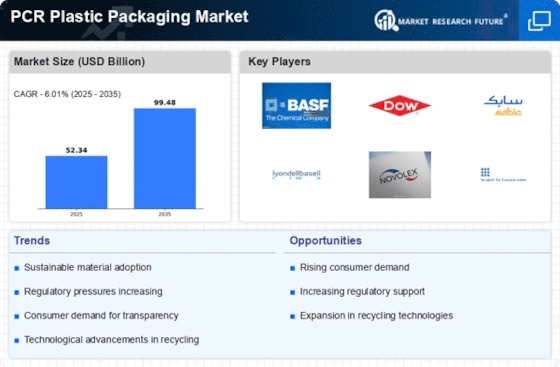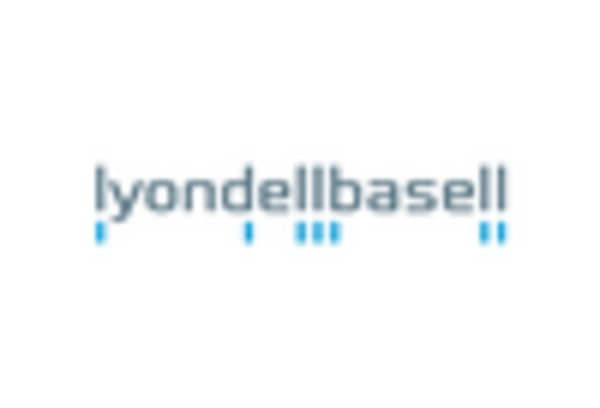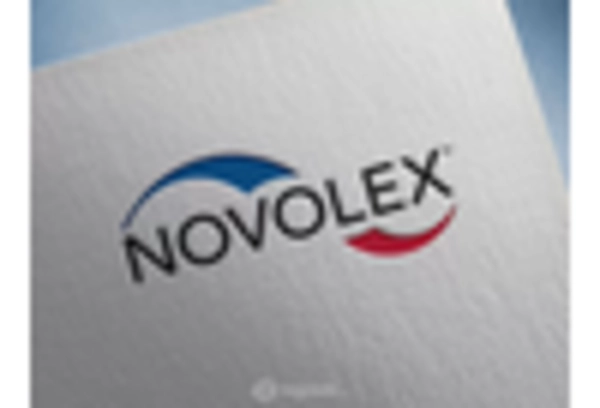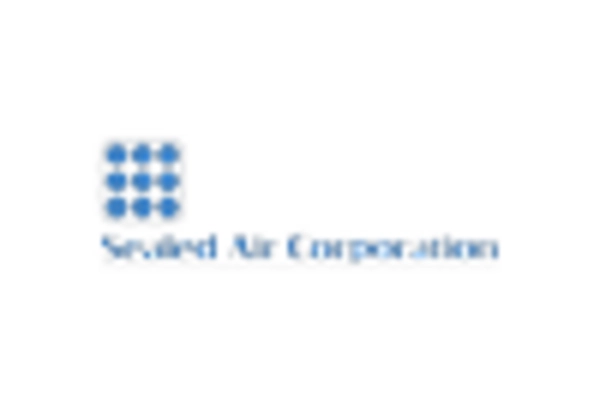Market Trends
Key Emerging Trends in the PCR Plastic Packaging Market
The PCR (Post-Consumer Recycled) plastic packaging market is witnessing significant trends driven by factors such as sustainability initiatives, consumer demand for eco-friendly products, regulatory requirements, and technological advancements. PCR plastic packaging refers to packaging materials made from recycled plastic obtained from post-consumer sources, such as plastic bottles, containers, and packaging waste.
One prominent trend in the PCR plastic packaging market is the increasing focus on sustainability and circular economy principles. With growing concerns about plastic pollution and environmental degradation, there is a rising demand for packaging solutions that minimize reliance on virgin plastics and promote the use of recycled materials. PCR plastic packaging offers a sustainable alternative by diverting plastic waste from landfills, reducing carbon emissions, and conserving natural resources. Manufacturers are responding to this trend by incorporating higher percentages of PCR content into their packaging products, meeting the sustainability goals of both businesses and consumers.
Leading market players invested heavily in research and Development (R&D) to scale up their manufacturing units and develop technologically advanced solutions, which will help the PCR Plastic Packaging market grow worldwide. Market participants are also undertaking various organic or inorganic strategic approaches to strengthen and expand their global footprint, with significant market developments including new Material portfolios, contractual deals, mergers and acquisitions, capital expenditure, higher investments, and strategic alliances with other organizations.
Moreover, regulatory requirements and industry standards are driving the adoption of PCR plastic packaging solutions across various sectors. Government regulations and initiatives aimed at reducing plastic waste and promoting recycling have led to increased demand for PCR plastic packaging in markets such as food and beverages, personal care, household products, and pharmaceuticals. Certifications such as the Recycled Content Certification or the How2Recycle label provide assurance to consumers regarding the recycled content and recyclability of PCR plastic packaging, influencing purchasing decisions and brand preferences.
Additionally, technological advancements are driving innovation in PCR plastic packaging, leading to improvements in material quality, performance, and processing capabilities. Innovations in recycling technologies, such as mechanical recycling, chemical recycling, and advanced sorting systems, enable the production of high-quality PCR resins with properties comparable to virgin plastics. These advancements expand the range of applications for PCR plastic packaging, allowing manufacturers to create packaging solutions that meet the stringent requirements of diverse industries while reducing environmental impact.
The rise of consumer awareness and activism around environmental issues is also shaping market trends in the PCR plastic packaging industry. Consumers are increasingly seeking products and brands that demonstrate a commitment to sustainability and environmental responsibility. As a result, companies are under pressure to adopt more sustainable packaging practices, including the use of PCR plastic packaging, to meet consumer expectations and maintain brand relevance. Marketing initiatives highlighting the use of PCR plastic packaging and environmental stewardship efforts resonate with environmentally conscious consumers, driving demand for products packaged in PCR plastic materials.
Furthermore, brand differentiation and product innovation are driving the adoption of PCR plastic packaging solutions in competitive markets. Companies are leveraging PCR plastic packaging as a point of differentiation and a means to communicate their sustainability initiatives and brand values to consumers. Customized designs, vibrant colors, and innovative packaging formats made from PCR plastic materials enhance product visibility and shelf appeal, attracting consumer attention and driving purchase decisions in crowded retail environments.
Supply chain resilience and transparency have become critical considerations for businesses in the wake of global disruptions such as the COVID-19 pandemic. PCR plastic packaging plays a vital role in ensuring the safe and efficient transport of goods and materials across supply chains, from manufacturing and distribution to retailing and consumption. As companies strive to minimize supply chain risks and maintain business continuity, the demand for reliable, sustainable, and traceable packaging solutions, including PCR plastic packaging, is expected to continue growing.


















Leave a Comment